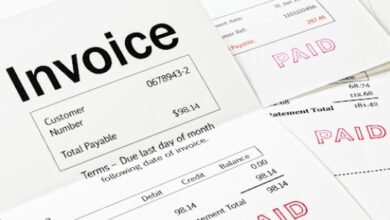Introduction To Commercial Account

In the finance and insurance industry, a commercial account is a specialized type of banking account designed specifically for businesses. Unlike personal accounts, commercial accounts cater to the unique needs of companies, providing them with financial tools and services that help streamline business operations. Whether a small business, a startup, or a large corporation, having the right commercial account is essential for managing transactions, payroll, and financial growth.
This article explains what a commercial account is, the different types available, benefits, and tips for choosing the right one for your business.
What Is A Commercial Account?
A commercial account is a business bank account used exclusively for company finances. It separates personal and business transactions, which is crucial for accurate bookkeeping and tax purposes. Commercial accounts typically come with higher transaction limits, access to credit lines, and additional features tailored to business needs.
By using a commercial account, businesses can better track revenue, expenses, and cash flow, which enhances financial management and transparency.
Types Of Commercial Accounts
There are several types of commercial accounts, each serving different business purposes:
Business Checking Account
The business checking account is the most common type of commercial account. It is used for daily transactions such as receiving payments from customers, paying bills, and managing payroll. These accounts often come with features like unlimited transactions, debit cards, and online banking access.
Business Savings Account
Business savings accounts help companies set aside funds for future expenses or emergencies. They usually offer interest earnings while keeping money accessible when needed.
Merchant Account
A merchant account enables businesses to accept credit and debit card payments. This is especially important for retail and service companies that require fast and secure payment processing.
Commercial Loan Account
Some banks offer commercial loan accounts linked to a business’s main account. These accounts help manage borrowed funds and repayments efficiently.
Benefits Of Using A Commercial Account
Using a commercial account offers many advantages for businesses:
Clear Financial Separation
A commercial account keeps personal and business finances separate, simplifying tax filings and audits.
Enhanced Credibility
Having a dedicated commercial account improves a company’s professional image and trustworthiness with clients and suppliers.
Access To Business Services
Banks often provide additional business-related services such as payroll processing, cash management, and business credit cards to commercial account holders.
Easier Loan Applications
Maintaining a commercial account with consistent financial activity can help when applying for loans or credit, as it demonstrates financial responsibility.
Better Cash Flow Management
Commercial accounts offer tools and reports to help businesses monitor their cash flow and make informed financial decisions.
See also: Choosing the Perfect Live Auction Software: A Complete Guide for Business Success
How To Choose The Right Commercial Account
Choosing the best commercial account depends on several factors:
- Business Size And Industry: Some accounts are tailored for small businesses, while others cater to larger corporations or specific industries.
- Transaction Volume: Consider how many transactions your business processes monthly to select an account with suitable limits.
- Fees And Charges: Compare monthly fees, transaction costs, and other charges to find a cost-effective option.
- Online And Mobile Banking Features: Modern businesses benefit from digital banking platforms that enable remote access and easy management.
- Additional Services: Look for banks offering value-added services like merchant accounts, payroll support, and business advisory.
Visiting multiple banks and discussing your business requirements can help identify the best commercial account fit.
Common Challenges Addressed By Commercial Accounts
A commercial account helps businesses overcome financial management challenges, including:
- Handling high transaction volumes without incurring excessive fees
- Managing multiple payment methods and customer billing
- Ensuring timely payroll and vendor payments
- Keeping accurate records for compliance and tax reporting
- Preventing fraud and unauthorized access through secure banking services
By choosing the right commercial account, businesses can simplify these complex processes.
The Role Of Technology In Commercial Accounts
Technology has revolutionized commercial accounts by introducing features such as:
- Real-time transaction alerts and notifications
- Integration with accounting software for seamless bookkeeping
- Secure online portals for payments and transfers
- Mobile apps for banking on the go
- Enhanced fraud detection systems
These technological advancements improve the efficiency and security of business banking.
Conclusion
A commercial account is a cornerstone for any business looking to manage its finances effectively. By offering specialized features and services, these accounts help companies streamline operations, improve financial transparency, and support growth initiatives.
Selecting the right commercial account involves understanding your business needs, comparing options, and leveraging technology-enabled services. Ultimately, a well-chosen commercial account can provide your business with the financial tools necessary to succeed in today’s competitive market.




